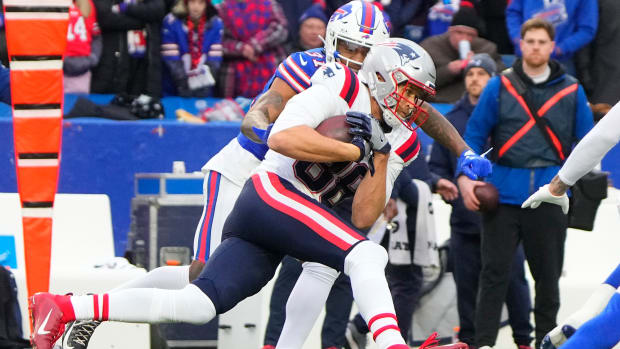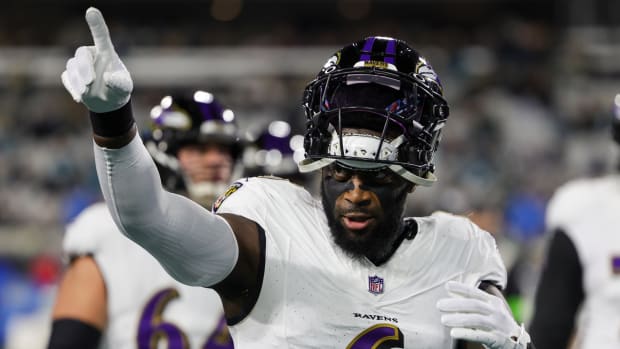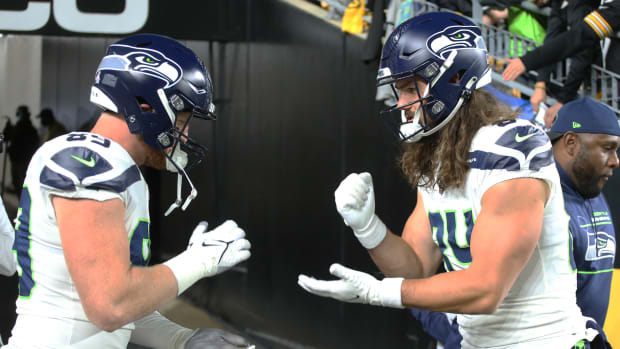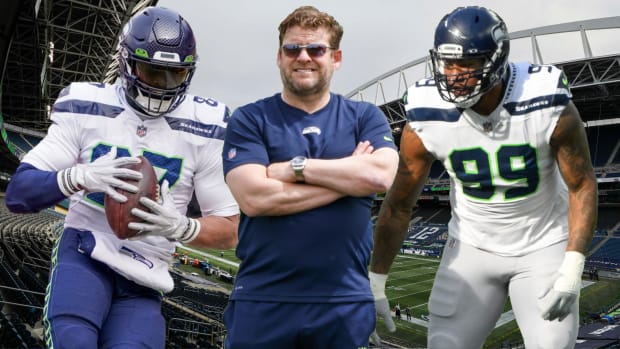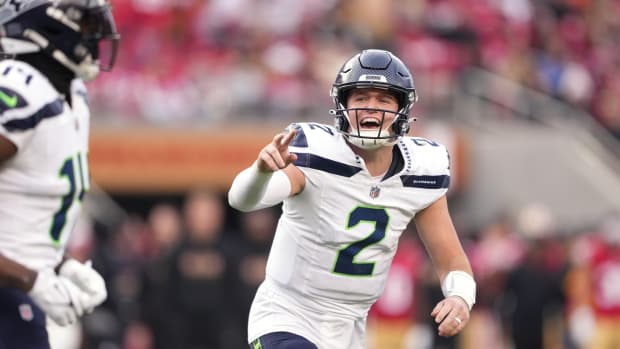Seahawks 2021 Draft Profile: Kylin Hill
As free agency rapidly approaches, a changing of the guard could be happening for the Seahawks in the backfield with veteran running backs Chris Carson and Carlos Hyde set to hit the market later this month.
While it remains possible Carson or Hyde could return, Seattle already re-signed Alex Collins to a one-year contract and former first-round pick Rashaad Penny will be able to enjoy a normal offseason after missing most of the 2020 season rehabbing from a torn ACL. The team will also welcome back DeeJay Dallas and Travis Homer, who were each drafted out of Miami over the past two years and offer versatility as third down backs and special teams contributors.
Despite the group lacking experience, Seattle may choose to roll into the 2021 season with those four backs competing for playing time. But if the organization wants to add another backfield weapon in the draft, Mississippi State's Kylin Hill could present an intriguing fit in Shane Waldron's offense.
Strengths
Decisive with his cuts, Hill excels at reading his blocks and always hits the crease hard. Built with a thick 214-pound frame, power may be most underappreciated part of his game. He doesn't fear contact, will lower the boom to run through tacklers, and displays excellent contact balance bouncing off of defenders. While he doesn't always move the pile, he finishes with authority, keeping his feet chopping to push for additional yardage.
Though he's a downhill runner who doesn't dance waiting for a hole to open up, when Hill gets to the second level against linebackers, corners, and safeties, he compensates for average speed with shake n' bake capabilities, including a filthy juke move and jump cut. He sets up oncoming defenders with a quality "dead" leg move as well, creating poor angles for tacklers and allowing him to slip through arm tackles.
Featured as a receiver during his time with the Bulldogs, Hill is ticking time bomb once the football is in his hands in the passing game. As evidenced in the 2020 season opener against LSU, when he's put into space and has one-on-one situations at second level, he can be a nightmare to bring down and has enough juice to take it the distance once he's forced a missed tackle. He will willingly go across the middle and catch passes in traffic, exhibits strong hands at the catch point.
Forced to transition into Mike Leach's Air Raid scheme, Hill made the most of his limited opportunities before eventually opting out during the middle of the 2020 season. He displayed superb route running skills and versatility, as he took snaps out of the slot and moved all over the formation.
Whether he's trying to pick up hard-fought yardage between the tackles or aiming to make a cornerback miss after the catch, Hill knows how to protect the football. On over 500 touches at the college level, he fumbled just one time and hasn't lost a fumble dating back to his sophomore year of high school.
Weaknesses
While possessing good speed and acceleration, Hill isn't one of the most explosive running back prospects in this draft class. Though he will occasionally bust loose for a 20-plus yard run, he doesn't have the ability to shift into a third gear at the second level and will have a tough time consistently creating separation from and out-running defenders.
Despite catching 67 passes during his collegiate career and generally being a reliable target in the passing game in multiple schemes, Hill has occasionally been a victim of focus-related drops out of the backfield, failing to see the football into his hands as he tries to turn upfield to make a play.
In pass protection, Hill has shown flashes of competency as a blocker - he's assignment sound in this regard picking up blitzes and effort isn't a concern - but he doesn't always use his hands effectively and has issues sustaining blocks after initial contact. When his hand placement is off or he fires his hands passively, he can be overwhelmed by bigger defenders due to technique-related flaws.
Hill didn't miss many games during his collegiate career due to injury, but as a result of his physical play style, he often was playing at less than 100 percent. While his decision to opt out during the pandemic was understandable, durability concerns could be legitimate for prospective NFL teams.
Fit in Seattle
Given his downhill, no non-sense running style, ideal size, and exceptional versatility as a pass catcher who can move around the formation, Hill checks off nearly every box the Seahawks look for at the running back position. Even if he doesn't possess breakaway 40-yard dash speed, neither did Carson or Marshawn Lynch.
While some draft analysts have viewed Hill's lack of starting experience as a detriment - he only had one full season as Mississippi State's undisputed starter - that may actually benefit whoever drafts him. He doesn't have the wear-and-tear that most of the other top backs in this class have and has only logged more than 120 carries in a season once.
Considering his skill set best fits a zone-oriented scheme, assuming he can handle running the ball out of under center formations after playing in spread offenses in college, Hill would be a strong day three selection for Seattle if he's still available in the fourth round.
